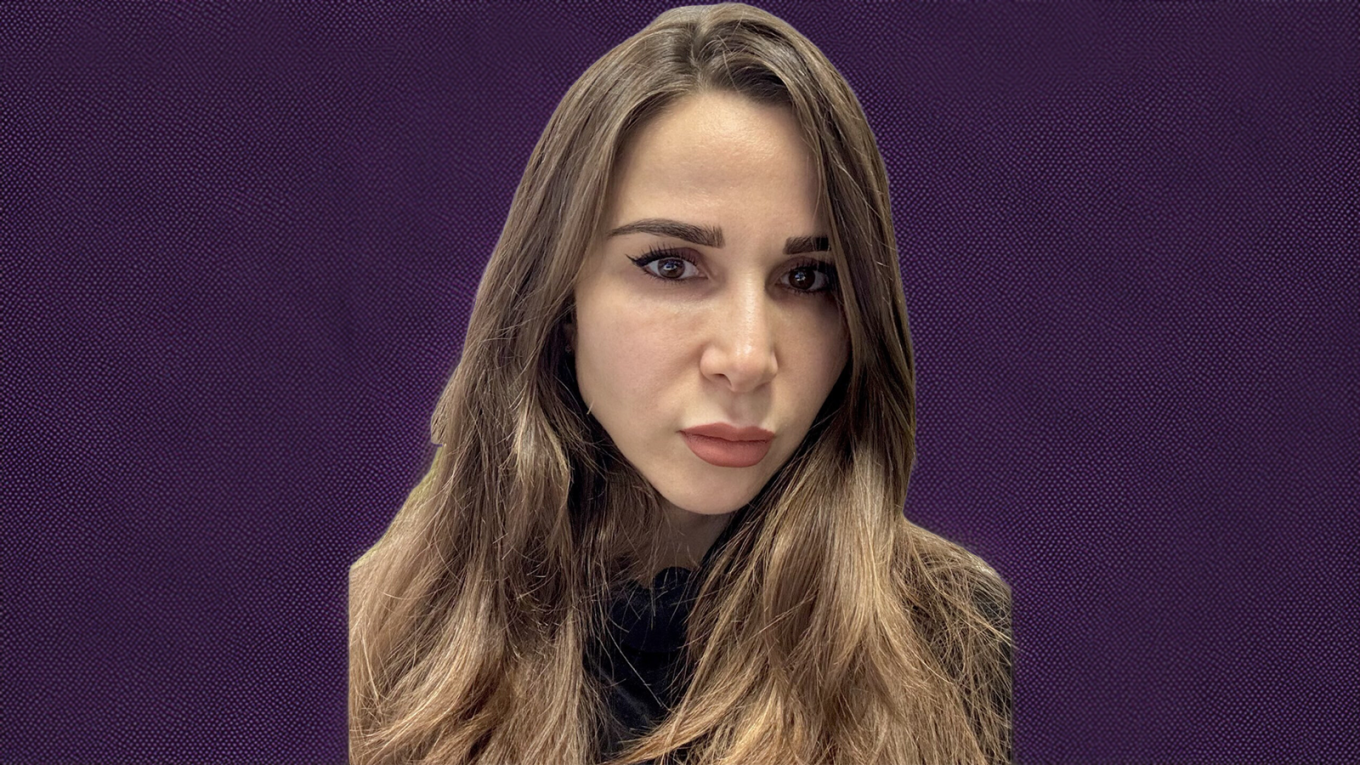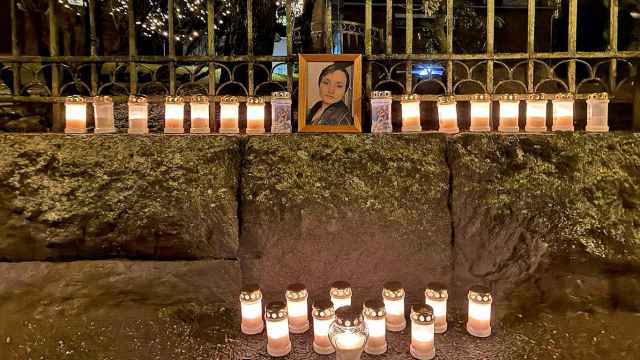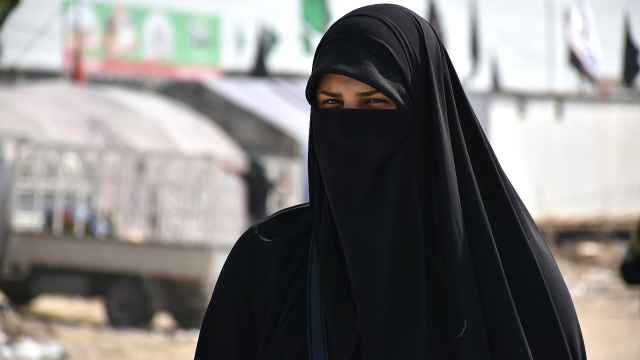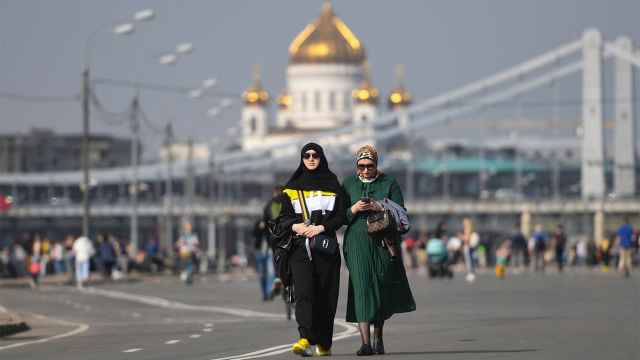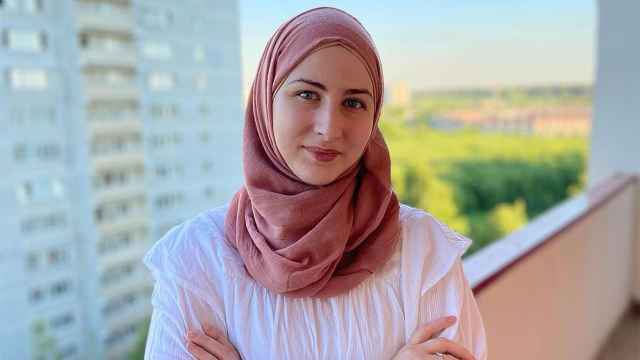Zarema Gasanova, an Indigenous Avar from the republic of Dagestan, was working as a nurse in a St. Petersburg clinic when Moscow ordered its troops over the border with Ukraine. At that moment, Gasanova, herself eligible for the draft, said she “could no longer stay on the sidelines.”
The Moscow Times spoke with the nurse-turned-Indigenous-activist about her career change, the benefits of activism in exile, rising xenophobia against people from the Caucasus in Russia and Dagestan’s future.
MT: When did you decide to turn from the medical trade to activism?
ZG: I was always politically conscious. I remember following Boris Nemtsov’s 2008 presidential campaign, being shocked by the anti-NATO hysteria amid the annexation of Crimea in 2014 and watching Alexei Navalny’s investigations in the late 2010s. But I didn’t see myself aligning with any specific opposition group, probably because they were all focused exclusively on audiences in Moscow.
When February 24 happened, I could no longer stay on the sidelines. I first joined street protests, but when those became impossible due to repressive laws, I tried to do some local [anti-war] outreach work among my colleagues.
Then I joined the so-called silent protest, when you walk around the city and leave signs or stickers to remind people that the war is going on and that what’s happening is not normal. My friend and I would tie green ribbons around the city with things like ‘Peace to Ukraine’ or ‘Today is day X of the war, with X number of victims’ written on them.
MT: When did you realize that even this ‘silent’ protest was no longer a safe option for you and decide to leave the country?
On July 16, 2022, I was attacked by a man at a bus stop in St. Petersburg. He was huge, about two meters tall. He first hit me on the shoulder while shouting racial slurs [used against people from the Caucasus]. The second time, he aimed for my face, but thank God, he hit my shoulder again because I managed to dodge.
The police never arrived at the scene, so I went to the hospital and the police station by myself to document my injuries and file a report. Only two weeks later, I got a phone call from a police representative, who said something like, ‘Well, you understand that this isn’t really a serious case — it’s just minor hooliganism.’
On the same day that the attack happened, my friend was detained for writing ‘Peace to Ukraine’ on a wall with spray paint. Shortly after, she left the country for Armenia.
After her arrest, I received a call [from the police] asking about her identity and whether we were connected. That’s when I realized that both my activism and safety were compromised. I was traumatized by the assault. At some point, I became afraid to even be out in public.
Then, the mobilization started [in September]. Because I am eligible for conscription [as a trained nurse], I felt that it had all gone too far. So I left.
MT: You lived in St. Petersburg for many years. Was that the first time you were targeted in a xenophobic attack? Though we can leave this question out if it is too difficult to recall…
I think I have to talk about it despite how difficult it is.
I…was always forced to prove that I was good enough for [living in a predominantly] white society. I was once late to a lecture at my university. I walked in and apologized, but my professor started mocking me by imitating a Caucasus accent in Russian in response. I had to speak up and tell him that I don’t speak with an accent, and there’s no reason to assume it’s okay to mock me like that.
I also faced racism while working in the medical sphere. Patients would openly question my competencies because of my non-Russian first and last name and my former boss would use ethnic slurs behind my back.
In short, xenophobia was everywhere, but it is growing now because the government uses the dominant Russian identity as a propaganda tool and the [far-right movement] Russkaya Obshchina feels infinitely empowered.
MT: You are now seeking asylum in Finland. What has been your experience as an Indigenous Muslim refugee from Russia?
Because Finland borders Russia, I always assumed that people here have a better understanding of what is happening there compared to, for example, people in Western Europe.
But the image of the North Caucasus here is often full of the same old stereotypes. Dagestan, Chechnya and Ingushetia are portrayed as zones of instability, war and violence — an image Russia has been shaping for decades, even centuries. For people from these regions, the [asylum] process is much more difficult than it is for ethnic Russians.
The additional vulnerability of asylum applicants like us, Indigenous peoples, is often neither acknowledged nor taken into account by the system.
In Russia, the risks associated with political activism are not the same for everyone. Laws that are formally the same for all citizens are applied unevenly in practice. Indigenous peoples, especially those from the North Caucasus, often face heightened surveillance, suspicion, discrimination and harsh persecution, even for peaceful anti-war or human rights activities.
This is something that must be taken into account when it comes to granting international protection. People [with a Russian passport] are not fleeing the same Russia. For some, it has always been a hostile place, even before the war.
MT: Have you been able to continue with activist work in exile?
My activism became much more transparent, naturally, because I am no longer afraid to speak out loud. I can also speak freely about the decolonization of Russia and I have finally found allies.
Here in Finland, I co-founded a local chapter of Feminist Anti-War Resistance. It is an intersectional organization that includes the decolonial agenda and embraces all marginalized communities. I found support in this community, a place where I don’t have to prove anything and where my opinion isn’t pushed aside.
MT: Dagestan is a republic with immense ethnic diversity and no single dominant ethnic group. How do you explain this unique context to foreigners?
Russia’s image abroad is built on stereotypical symbols like the Kremlin, matryoshka dolls and the kokoshnik [headdress]. So I usually say that my homeland is a country within a country, because we have completely different cultures and languages.
There are more than 30 ethnic groups living in Dagestan, each with its language, culture and traditions. Visitors are often surprised at how peacefully and harmoniously this mosaic of ethnicities coexists in Dagestan. But I would say that this is a place where history, traditions and languages are so deeply intertwined that it gives us strength.
MT: What kind of Dagestan would you want to return to?
An independent one, of course. A Dagestan where people are not afraid and can take responsibility for their own lives. A Dagestan that people don’t have to leave in search of work or to escape repression.
But also a Dagestan that chose a democratic path. I am convinced that such a path is possible, and that it can coexist with traditions and Islam [the republic’s dominant religion]. I believe that Islam and democracy do not contradict one another. On the contrary, democracy allows people to find space for a more sincere and conscious spiritual life.
I’m drawn to the idea of a society where faith remains part of a person’s cultural identity, but — and this is a big ‘but’ — never used as a tool of pressure or control.
A Message from The Moscow Times:
Dear readers,
We are facing unprecedented challenges. Russia's Prosecutor General's Office has designated The Moscow Times as an "undesirable" organization, criminalizing our work and putting our staff at risk of prosecution. This follows our earlier unjust labeling as a "foreign agent."
These actions are direct attempts to silence independent journalism in Russia. The authorities claim our work "discredits the decisions of the Russian leadership." We see things differently: we strive to provide accurate, unbiased reporting on Russia.
We, the journalists of The Moscow Times, refuse to be silenced. But to continue our work, we need your help.
Your support, no matter how small, makes a world of difference. If you can, please support us monthly starting from just $2. It's quick to set up, and every contribution makes a significant impact.
By supporting The Moscow Times, you're defending open, independent journalism in the face of repression. Thank you for standing with us.
Remind me later.



